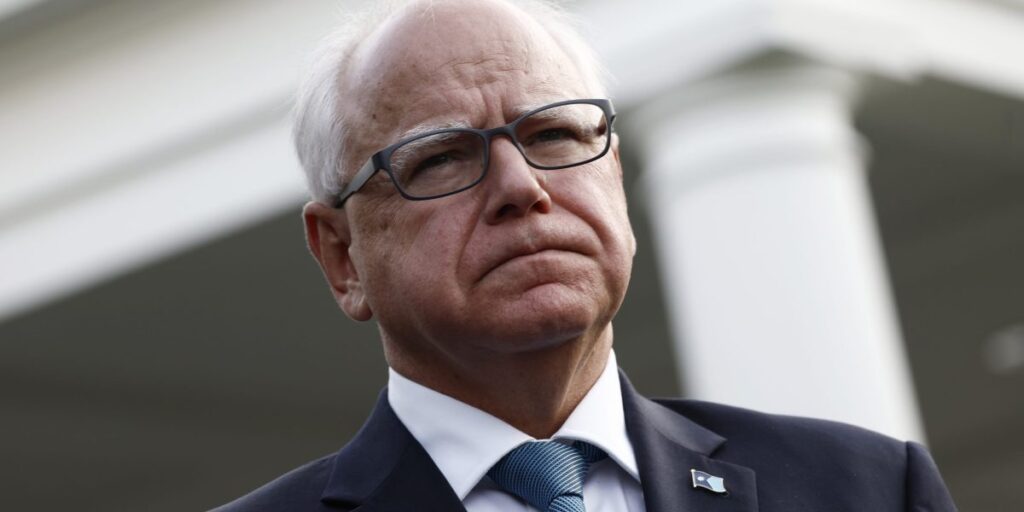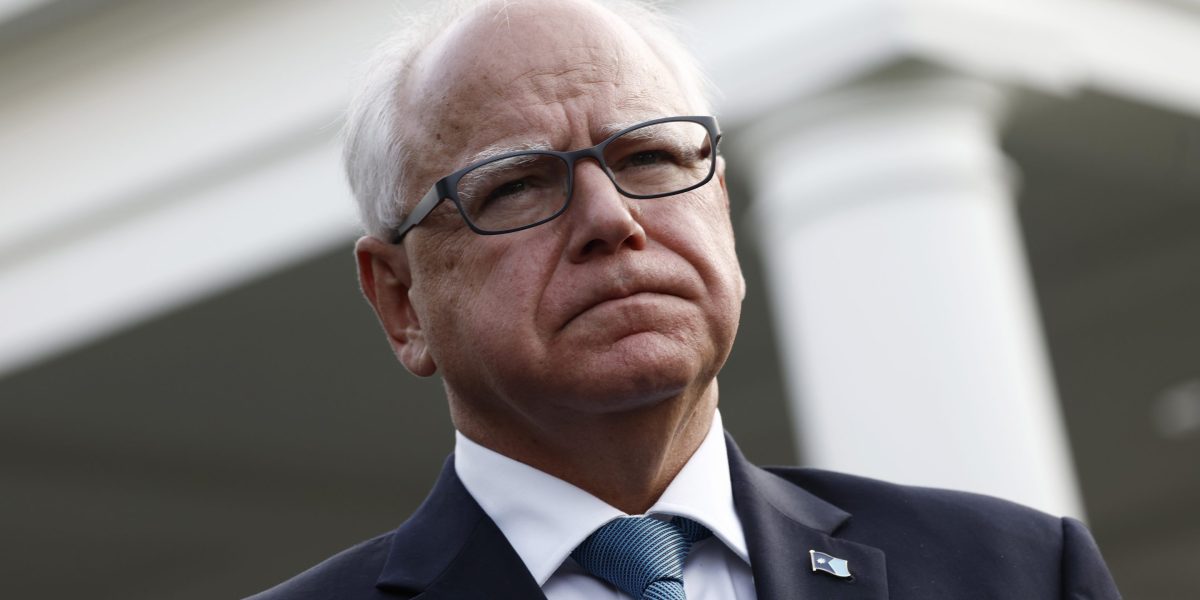In Tim Walz, Kamala Harris gets a labor champion who can still appeal to critical heartland voters
The Minnesota governor has passed sweeping labor reform laws in his second term, earning the endorsements of UAW President Shawn Fein and Senator Bernie Sanders.


Just as Trump chose to take on a running mate who did more to fire up the MAGA base than pull in moderate voters, Kamala Harris has foregone more conservative choices and picked a vice presidential nominee who will give progressives plenty to cheer about.
Tim Walz, a 60-year-old midwesterner who has served as Minnesota’s governor since 2018, is a relatively unknown figure in national politics. But over the last few weeks he’s sparked enthusiasm among Democrats for his track record on abortion and particularly labor, and for his willingness to go after former President Trump and his new running mate JD Vance as the general election heats up.
Who is Tim Walz?
Like Vance, Walz also enlisted in the military, serving in the National Guard for 24 years. But beyond that, the similarities between Vance and Walz dry up. While Vance went on to Yale Law School and a career in venture capital, Walz earned a degree in social studies education from Chadron State College in his home state of Nebraska. He went on to teach social studies and coach football in Mankato, Minnesota.
When Walz first entered national politics in 2006, he was seen as a moderate. He served six terms in the U.S. House, where he continued to serve in the National Guard and rose to the rank of command sergeant major.
Business record—a champion of labor
In his 2018 gubernatorial campaign, Walz campaigned heavily on boosting the state’s investment in education, health care, and infrastructure.
“My philosophy has always been that the economy is a garden,” he said in a 2018 ad. “It needs tending, it needs nurturing. My republican colleagues believe the economy is a jungle— Just let it grow and whatever happens happens. I disagree with that.”
Since being elected governor, Walz has garnered more liberal credentials than many initially expected, and has become a darling of the state’s labor leaders, who in an open letter to Harris last month called him “a candidate for vice president who can deliver on working families’ priorities.”
After Democrats won control of both chambers of the state legislature in 2022, Walz helped pass a slew of progressive policies. In May 2023, he passed sweeping pro-labor legislation that state Democrats said could be one of the most significant worker protection bills in state history.
The new law—which the Minnesota Reformer described as “a Democratic wish list … that will affect virtually every worker in the state”—guaranteed paid sick and family leave for employees, and nullified noncompete agreements for some 350,000 workers in the state. The law also made general construction contractors liable for wage theft and forced companies like Amazon to disclose quota and productivity evaluation systems to employees.
2023 was a productive year for Democrats in Minnesota. In January, Walz passed a law enshrining the right to abortion into state law, and in May he helped pass legislation committing the state to generate 100% of its electricity from carbon-free sources by 2040. He followed that with legislation to help streamline the permitting process for clean-energy projects.
Last fall, when the United Auto Workers went on strike against the big three automakers—Ford, GM, and Stellantis—Walz joined members of the union at the picket line of the Stellantis factory in Plymouth, Minnesota, an act of solidarity that earned kudos from UAW President Shawn Fein. On Sunday, two days before Harris announced her pick for VP, Fein said on Face the Nation that Walz and Kentucky Governor Andy Beshear were his top people to fill out the ticket.
“Both of those men walked the picket line with our workers last fall and they’ve always been there for working class people,” Fein said.
Walz’s labor bona fides have also caught the attention of perhaps the most widely-recognized union advocate in U.S. politics, Vermont Senator Bernie Sanders, who backed Walz in an interview with Minnesota Public Radio this weekend.
“I hope very much that the vice president elects a running mate who will speak up and take on powerful corporate interests,” Sanders said. “And I think Tim Walz is somebody who could do that.”
What does Walz bring to the ticket?
Walz was far from the safest choice for Harris, who passed over Pennsylvania Governor Josh Shapiro, a more moderate Democrat who would have helped deliver a key swing state. In the hours after Harris named the Minnesota governor as her VP, GOP lawmakers have rushed to brand him as a “radical” and “Bernie Sanders’ choice for VP.”
But while Minnesota hasn’t gone Republican in a presidential election since Richard Nixon’s landslide victory in 1972, Trump has long expressed interest in flipping the state red, and throughout his political career Walz has shown an ability to connect with the rural voters Harris will need to win over if her campaign is to be successful.
In his first bid for Congress, Walz defeated a Republican incumbent in Minnesota’s historically conservative and rural First District, and in 2018 he won the gubernatorial race by more than 11 points, campaigning as a candidate who would compromise with Republicans.
In their letter to Harris, Minnesota labor leaders said “a ticket with Walz likely delivers Minnesota, Wisconsin, and Nebraska’s 2nd Congressional District,” and “he makes Michigan extremely competitive.”
In addition, Walz has shown a willingness to attack Trump and Vance directly without stooping to all-out mudslinging. In recent interviews, the Minnesota governor has repeatedly called the two Republicans “weird,” a characterization that’s been adopted by Harris and might become an unlikely rallying cry for Democrats as the campaign races towards November.





